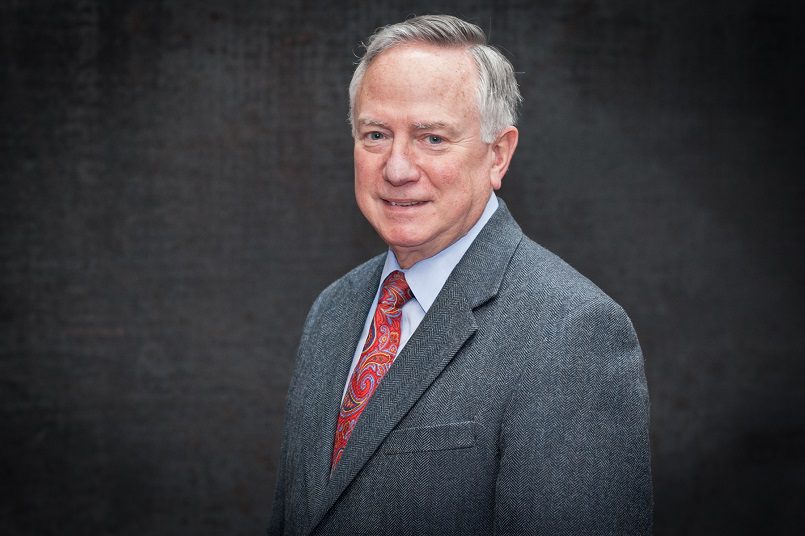24 Feb 2019 UACCM to host Holocaust survivor

Holocaust survivor Alfred Münzer will speak at Morrilton as part of the University of Arkansas Community College at Morrilton’s 11th Annual Holocaust Survivor Series. He will lecture at Morrilton High School’s Devil Dog Arena at 9:45 a.m., Tuesday, March 5, to secondary students in UACCM’s service area. Later that evening at 6:30 p.m., he will speak again at UACCM’s Fine Arts Auditorium. A question and answer session and photo opportunities will follow the presentations. Both events are free and open to the public.
When Alfred Münzer was born in Nazi-occupied Netherlands on Nov. 23, 1941, his parents knew their youngest of three children was entering a dire situation. The family doctor even advised his parents to terminate the pregnancy to save the child from the evils of the Holocaust. Some 160,000 Dutch Jews lived in the country and faced a hardening Nazi policy of suppression — activities included segregation from the general population, confiscation of property and regular violence. Only months after Alfred’s birth, the Nazi government ordered his father, Simcha, into a labor camp, only to be saved when he admitted himself into a hospital for a hernia surgery.
When his mother, Gisele, joined her husband under the auspices of a nurse’s assistant, Alfred and his two sisters separated and went under the care of family friends. Alfred moved in with a Dutch-Indonesian family, the Madnas, who treated him as one of their own. The Madnas’ housekeeper took much of the duties to take care of him and acted as a surrogate mother. He was never allowed to leave the house and had to hide in the cellar when the Gestapo conducted searches for Jews in hiding. He remained with the Madnas throughout the war.
In 1944, another family hiding Alfred’s sisters, 8-year-old Eva and 6-year-old Leah, were sent to Auschwitz, where they were killed soon after their arrival. His parents both survived the war even though they had extended stays at Nazi death camps. Simcha, liberated at Ebensee by American forces in 1945, passed away months later while undergoing medical treatment.
After the war ended, the Red Cross evacuated Gisele back to Holland. She reunited with Alfred, but the 4-year-old had no memory of his mother. To transition the boy back to his family, Gisele invited his surrogate mother to their new home in the Netherlands.
In 1958, Alfred and Gisele immigrated to the United States. He lives in Washington, D.C., where he was an internist and pulmonologist. He still maintains a close relationship with the Indonesian-Dutch family who hid him from the Nazis.
“For the past 10 years, UACCM has partnered with the U.S. Holocaust Memorial Museum to bring a survivor volunteer to the community, and each of the previous 10 speakers has provided a moving and memorable experience of suffering, loss and survival,” said Mary Clark, UACCM’s director of marketing and public relations. “Because each survivor has a unique, individual story, the college has made a commitment to provide this annual speaker series as long as the opportunity exists.”
Münzer is taking part in this event thanks to the United States Holocaust Memorial Museum located in Washington, D.C. The survivors do not charge a speaking fee, and they donate thousands of hours of service annually to the Museum by doing speaking engagements across the country, providing tours and lectures at the Museum and participating in other special related activities. Its educational programs are aimed at raising awareness of the events of the Holocaust, combating Holocaust denialism, and civically activating the world to end all acts of mass murder.
“It’s now been almost 74 years since World War II ended and Auschwitz and other death camps were liberated, “Clark said. “We want to provide as many people in the region with the opportunity to hear from a survivor, to be enlightened as to how and why this happened, and to make sure that people never forget. It’s an honor and a privilege to host this event. We can read books and watch films about the Holocaust, but nothing can compare to hearing these powerful stories first-hand.”
The format of both events will be a stand-alone lecture with Münzer speaking about his experiences for 40-50 minutes followed by a Q-and-A session and photo opportunities with the audience. Those who wish to bring a school group to the daytime presentation should contact Mary Clark at 501.977.2011 or [email protected] to ensure students can be seated together.








